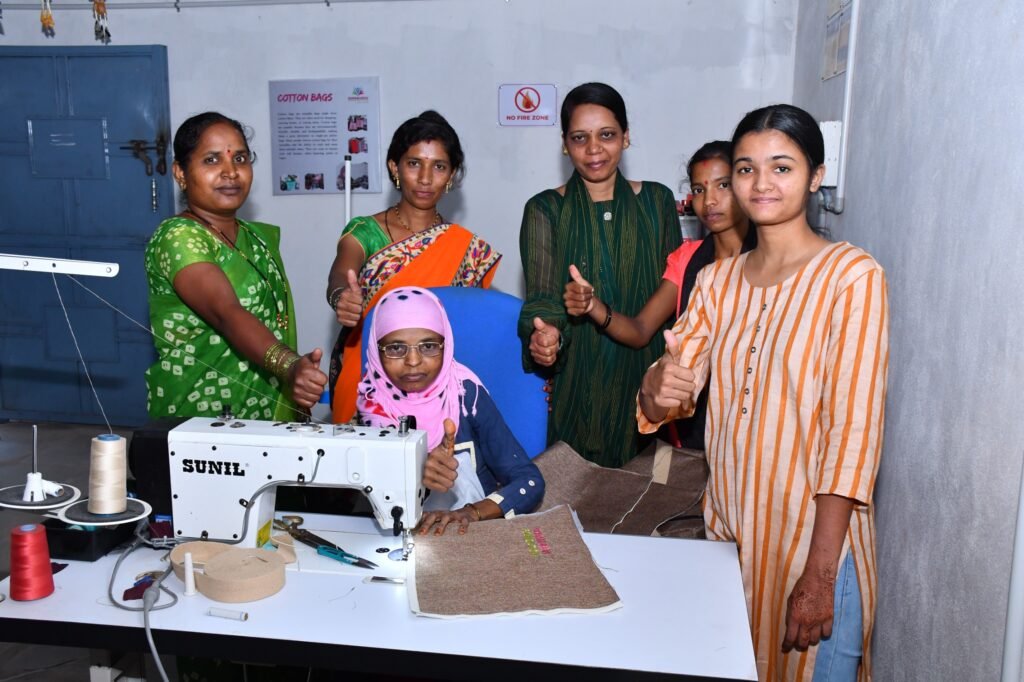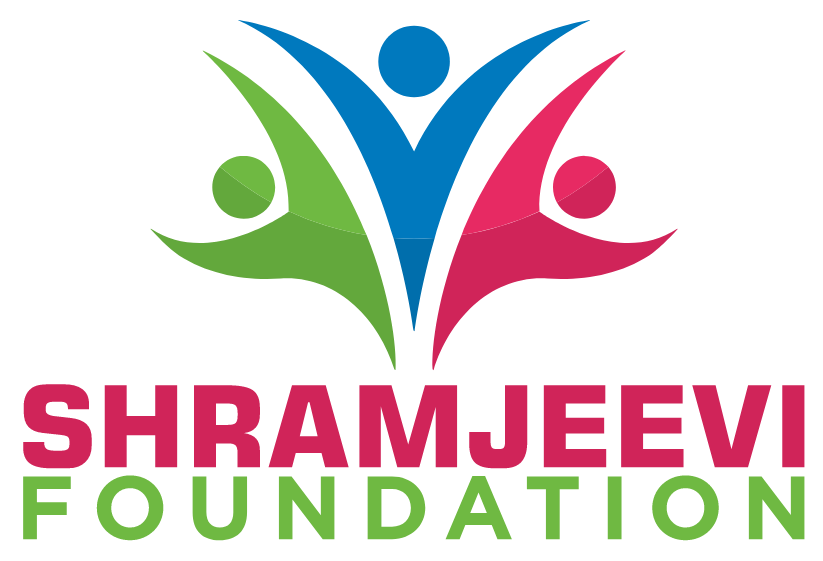Founder's Story
Meet The Founder
Sharavva Daroji
Sharavva was born in 1978 in the small village of Chikalgud in Karnataka, India. Growing up in a large family, she was the daughter of Kalagouda and Shanta Patil, who worked in agriculture. Unfortunately, the family’s income was often unreliable due to erratic rainfall, making it difficult to meet their daily needs. Despite the hardships, Sharavva’s parents instilled in her the values of hard work and perseverance. To improve their financial situation, Sharavva’s father made the tough decision to move to Goa in search of better opportunities.
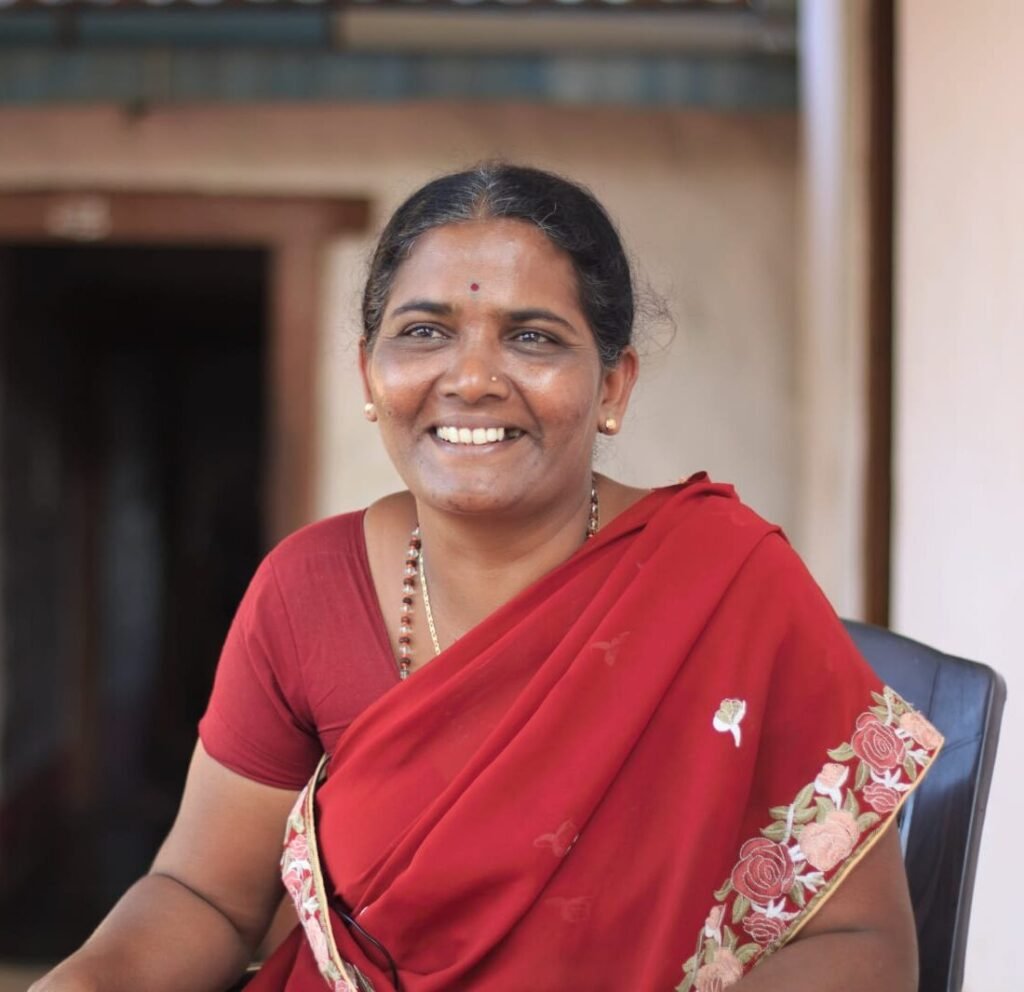

In 1988, at just 10 years old, Sharavva and some family members joined her father in Goa. Witnessing his relentless efforts to provide for the family inspired her. She began selling fruits and cold drinks to tourists on the beach, quickly learning how to cater to their needs. With her keen sense of what products would attract customers, she became quite successful, honing her skills in sales and customer service.
One fateful day, Sharavva met Mrs. Annee Doyle, a dynamic woman from Ireland visiting Goa for vacation. Mrs. Doyle was struck by Sharavva’s dedication and potential. After purchasing some of her goods, she shared ideas about crafts and fabrics that ignited a spark in Sharavva. This encouragement led her to explore crafting, setting the stage for her entrepreneurial journey. Shortly after, in 1993, Sharavva married a farmer named Shivaputra S. Daroji, and they began building a life together.

In 1994, as Sharavva prepared to welcome a new child into the world, excitement filled her home. However, tragedy struck when her husband unexpectedly passed away, leaving her seven months pregnant and facing an uncertain future. With limited formal education and an infant to care for, Sharavva returned to live with her parents and brother, who provided her with the emotional and financial support she desperately needed during this challenging time.
During these years, Sharavva focused on nurturing her son while contemplating her next steps. She spent her days sewing and creating, often reminiscing about the encouragement she had received from Mrs. Doyle. As her child grew, Sharavva began to think about how she could turn her skills into a sustainable livelihood.

With a small retail outlet established in Belagavi, Sharavva had a vision to create a unique brand called ‘Rural Arts.’ She dreamed of having both an online and offline presence, offering products that showcased the rich cultural heritage of Indian craftsmanship. Her product line included handmade cloth bags, stoles, home décor, quilts, and more. Each piece was a labor of love, reflecting her dedication and the skills she had honed over the years. In 2014, her handmade quilts gained national recognition when Sudha Murthy placed a substantial order for 1,000 quilts, marking a significant milestone in her entrepreneurial journey.

After overcoming the initial struggles of establishing her business, Sharavva was ready to expand. Unfortunately, the COVID-19 pandemic struck in March, bringing travel restrictions and halting her sales, which primarily relied on tourist customers. As her savings dwindled, Sharavva faced an uphill battle to provide a basic income for her staff and artisans. However, she remained determined to keep her dream alive. As markets began to reopen, she actively sought capital to invest in inventory and sustain her Self-Help Group (SHG), which comprised women from her community.
Sharavva’s story exemplifies the vibrant spirit of micro-entrepreneurs in India who work tirelessly to preserve their cultural heritage through crafts and traditions. By supporting Rural Arts, consumers can play a role in empowering these artisans and contributing to their livelihoods.
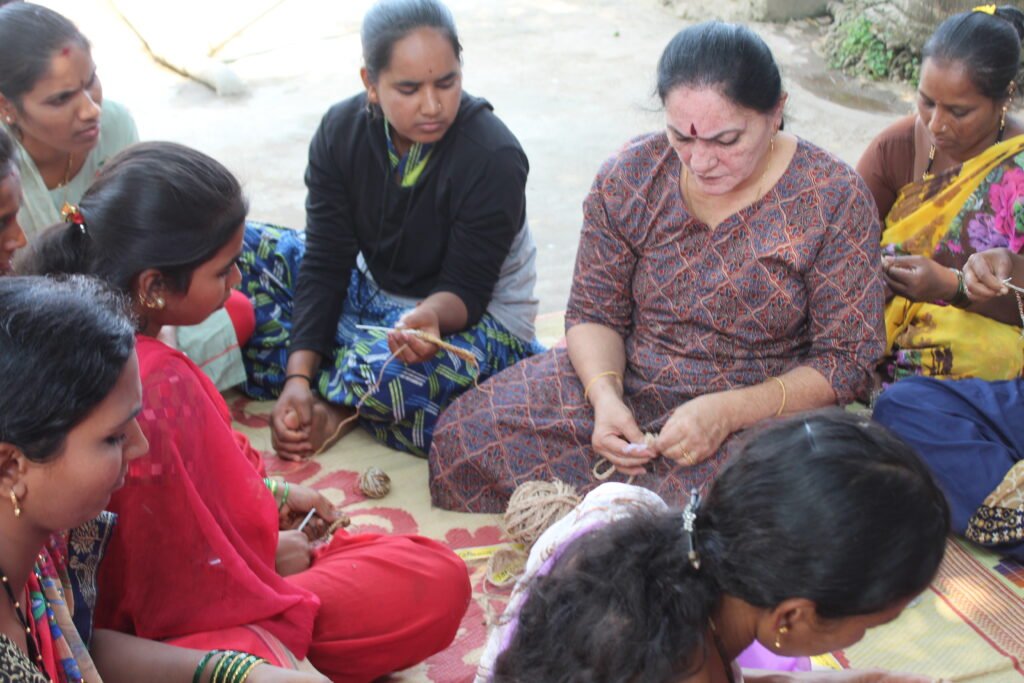
A pivotal moment came when Sharavva’s brother recognized her potential. He introduced her to an American woman who owned a shop in Goa. Impressed by Sharavva’s sewing skills, the woman placed orders for cloth bags, providing her with the confidence boost she needed to pursue entrepreneurship. This external support opened new doors for Sharavva, inspiring her to take greater risks and embrace her capabilities.
With the success of her cloth bags, Sharavva secured a loan from the District Industries Centre (DIC) to expand her operations. Later, she obtained a loan of INR 10 lakh from the Union Bank of India under the MUDRA Yojana, further solidifying her business foundations. As her enterprise grew, she employed more women from her village, empowering them to contribute to their families’ finances. Sharavva also partnered with NGOs to provide training in entrepreneurship and skill development, helping women gain confidence and independence.
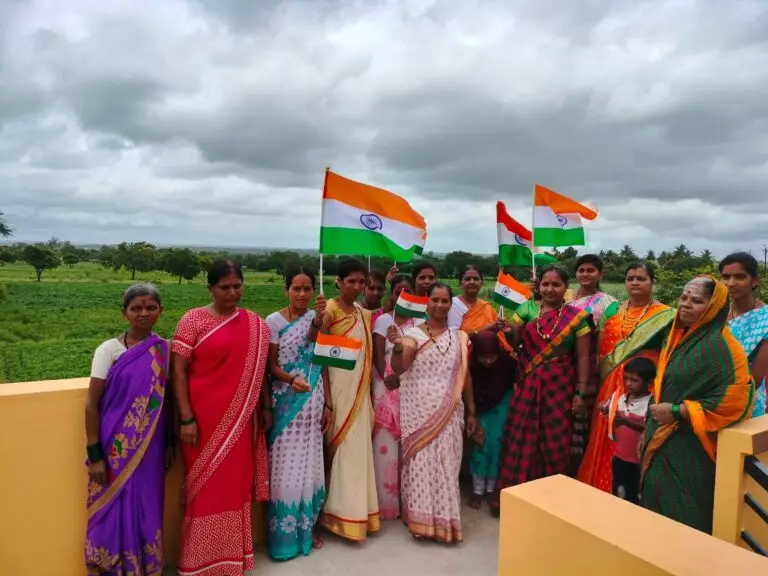
Over the past decade, Sharavva has transformed not only her own life but also the lives of hundreds of women in her community. She took the initiative to mobilize other women from her village, forming the Matha Savithri Bhai Self-Help Group (SHG), which now comprises 30 members, each in need of a livelihood. Recently, they completed a significant order for 500 quilts placed by Nirmala Sitharaman, the Minister of Finance of India. This achievement showcased the hard work and determination of the women involved, many of whom have become the primary earners for their families.
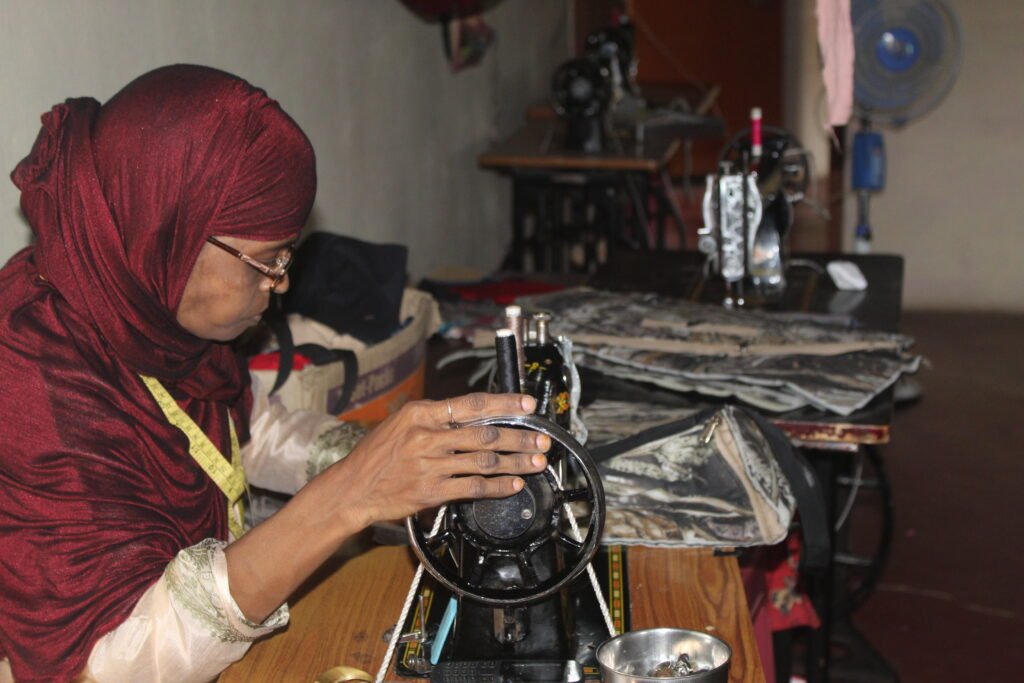
Among the SHG members is Parveenbabi Mulla, who joined after being abandoned by her husband while pregnant with her third child. Facing the challenges of being a single mother and living with a disability, Parveenbabai found it difficult to secure stable employment. When she learned about the SHG, she seized the opportunity to train in embroidery, gaining the skills she needed to support her family. Now, after a decade as part of the group, she has built a life of dignity and stability.
The stories of Sharavva and her fellow SHG members highlight the resilience and determination of women who are transforming their lives through craft and entrepreneurship. Their collective efforts not only celebrate the rich tapestry of Indian craftsmanship but also uplift their families and communities, making a significant impact on their lives and the economy. Through initiatives like Rural Arts, these women are creating a legacy of empowerment and hope for future generations.
Founder's Gallery
How you can make a change?
Make A Donation
Your generous contributions enable us to expand our programs and reach more women in need. Every donation, big or small, helps provide essential resources for skill development, health, and livelihood.
Become A Volunteer
Share your skills and experience to help us create lasting change. Whether through training, mentorship, or community outreach, your involvement will directly impact the lives of women in rural areas.
